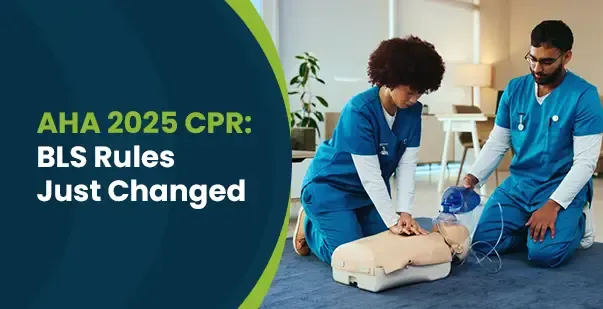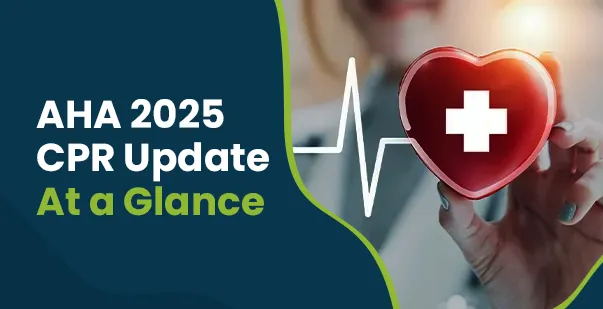Be it road accidents or unexpected falls, medical emergencies can occur in front of you anywhere and anytime. While you contact the first responders in the first place, your instinct might want you to aid the victims to save lives. But what if you accidentally injure them while helping and get sued for the same? A recent survey reveals that only 55% of Americans feel comfortable providing aid in emergency procedures. Fortunately, the Good Samaritan law protects people who assist victims in need in emergencies. You can help without worrying about the legal consequences of your actions. The legislation protects people who come forward and help others during an emergency.
Now, how do you know the specific situations that apply to a Good Samaritan act? Let’s find out more about these laws and the 9 types of situations covered under the law, along with other important details.
What Is The Good Samaritan Law?
Good Samaritan law, named after the Biblical parable, applies to Samaritans who help strangers during medical emergencies. The purpose of the act is to help others without fear of legal repercussions. This legislation will protect you from liability if you offer reasonable assistance to injured victims as long as it’s voluntary and without expecting any reward. However, the specifics of the Good Samaritan Law differ between states and countries:
- United States: Each state has its version of the law, with some providing protection only for medical professionals, while others extend coverage to anyone offering reasonable help.
- Canada: Most provinces have laws similar to the U.S., which provide legal protection to anyone who voluntarily helps in an emergency.
- United Kingdom: There’s no formal Good Samaritan Law, but common law protects those acting reasonably in an emergency.
Although the specifics of the law vary among states, the core principle remains the same. You are legally protected when providing emergency care in good faith to the best of your abilities.
How Good Samaritan Law Works?
The Good Samaritan Law is particularly relevant for situations that demand CPR and emergency assistance. When you find yourself in a situation where someone’s heart has stopped, your quick response will help them stay alive. The law ensures that you are not liable for any unintended harm you might cause while performing CPR in good faith.
The purpose of good samaritan law can be understood better with the help of below instances.
- Help People Feel Safe: The law ensures that you will not get into any trouble if you help people in a medical crisis.
- Encourage kindness: The law demonstrates to everyone that it is good to help people during emergencies.
- Build a strong community: The law removes fear from people to help in emergencies, making the way for a safer and happier community.
- Prevent people from getting sued: The law protects you from getting into trouble if you are trying to help the person in good faith.
Read More: 5 Common Fears of CPR and How To Overcome Them
9 Things Covered Under the Good Samaritan Law
A Good Samaritan refers to an individual who goes above and beyond to help others without expecting any reward or acknowledgment. However, how in which situations does Good Samaritan law help you in an emergency? Here, we have outlined 9 situations where you will be protected under the Good Samaritan Act.
- Medical Emergencies
Quick action from bystanders becomes inevitable during medical emergencies to save lives. Since time is of the essence, you may feel safe to offer first aid or assist with administering medications while professional help is on the way. In addition, when you have access to medicines during emergencies, the Good Samaritan law allows you to administer them to those affected.
- Drug Overdose
Unintentional drug overdose is one of the leading causes of death in the US. Witnesses to an overdose often don’t connect with emergency assistance because they are afraid of being arrested for drug-related crimes. In response, Good Samaritan acts provide legal protection for people who call for help.
The Controlled Substances Act (CSA) regulates the manufacture, distribution, and use of drugs classified into schedules based on their potential for abuse. While the CSA categorizes these drugs, certain states have Good Samaritan provisions that protect individuals from prosecution if they report a drug overdose. However, this protection is not uniform across all states. Some may only protect against possession charges, while others may extend to more serious offenses like drug distribution.
If you encounter any individual experiencing a drug overdose, you can administer naloxone and other overdose-reversal medications. You can also perform CPR or other life-saving protocols by placing the victim in the proper recovery position.
Training You Can Trust for Real Emergencies
Enroll in BLS Training
- Administering CPR and AED
If you administer CPR to the victim in good faith, you are safe from consequent injuries. This is because providing CPR ensures that victims have higher chances of survival until professional medical assistance arrives. Similarly, an Automated External Defibrillator (AED) is designed to be simple enough for anyone to use in an emergency, even without medical training. The device gives clear, step-by-step instructions so that bystanders can easily resuscitate a person in cardiac arrest.
The Good Samaritan Law shields individuals from legal consequences when they use an AED in good faith during an emergency. This means you can confidently use an AED to help a victim without fear of being held liable for any unintended outcomes, as long as your actions are intended to save a life.
- Accidents and Injuries
The Good Samaritan Law offers crucial legal protection for individuals who assist in emergencies, particularly in accidents and injuries. If you witness a car crash, head injury, or any other traumatic event, this law encourages you to take action without the fear of legal repercussions. The law covers actions like offering first aid, moving someone from immediate danger, or helping with other lifesaving measures.
Although the law protects your good-faith efforts, it doesn’t shield actions performed recklessly or beyond your level of training. For instance, if you’re not trained, moving an injured person could worsen their condition. In these cases, the Good Samaritan Law still encourages action, such as removing hazards (like fire or broken glass) to prevent further harm. However, it urges caution to avoid causing additional injury.
- Off-Duty Medically Trained Professionals
As with other aspects of Good Samaritan law, most states in the US cover the good faith act of off-duty medically trained professionals. It protects them when they currently have no legal obligation or duty to treat.
Once doctors, nurses, or other medical professionals leave their workspace, they are considered normal people with similar rights as other citizens. However, the boundary for providing emergency care will go beyond their professional training and experience.
- Emergency Care to Injured Animals
The Good Samaritan law also protects veterinarians or any individuals from liability for providing emergency care to an injured animal on or adjacent to a roadway. The law requires them to provide first aid care in good faith. Their immunity from the act will protect them for the care they deliver to the injured animal. They will also be protected for arranging for further advanced care as long as they are deemed to be reasonably good people.
- Assisting Childbirth
Childbirth can sometimes occur unexpectedly in public places, and the Good Samaritan Law extends its protection to those who assist in such situations. If you come across a woman in labor, especially in cases involving the homeless or others without immediate access to medical care, you are legally covered when you offer help.
You can help by providing comfort, guiding the mother through breathing techniques, or even supporting the delivery itself if medical professionals have not yet arrived. Basic steps such as keeping the area clean and making sure the baby’s airways are clear until paramedics arrive can be life-saving.
- Failure to Consent
Even in an emergency, a victim must give consent to their reducer to accept the aid being provided. If you fail to ask for consent or ignore the wishes of a victim declining the first aid, you might potentially face assault or other severe criminal charges. However, there are certain exceptions in the Good Samaritan law where consent is implied. It includes the event where the victim is unconscious or unable to respond to the offer to provide aid.
- Psychiatric Emergencies
Good Samaritan law isn’t limited to personal or physical emergencies but also extends to psychiatric emergencies. If an individual is experiencing a panic attack or harming themselves, you can calm them down by providing emotional support. The law protects you in such scenarios where you can connect the victims with mental health resources.
Read More: AED Use on Children and Infants: A Lifesaving Guide
Situations Where Good Samaritan Law Doesn’t Apply
While the Good Samaritan Act provides immense protection for every citizen, it does not cover every emergency. Here are some situations where the law doesn’t apply.
- Gross Negligence
The good samaritan law will not protect you from legal consequences if your action towards the victim is to harm their well-being intentionally. A typical example is when you provide emergency medication without prior training, leading to overdose or additional injuries.
- Assisting With Influence
You might not fall under the protection of the Samaritan Act if you provide aid to victims under the influence of drugs or alcohol. In such circumstances, your actions will harm or worsen the victims’ health conditions. Be sure to know the fact whether you can give safe and effective rescue efforts or not. If you do not, it is best to wait until the professional rescue efforts arrive.
You also need to get permission from the conscious victim before providing any care. This will not only ensure that the victim will accept care but also increase the rescuer’s protection under Good Samaritan Law.
- Exceptions and Limitations Within the Law
The Good Samaritan Law has certain limitations. Providing unreasonable assistance, not acting in good faith, expecting compensation, or engaging in willful misconduct will disqualify you from its protection.
Additionally, performing medical procedures or interventions beyond your level of training or knowledge can also disqualify you from protection under the law. It’s important only to perform tasks you are trained to do. Furthermore, if you refuse to hand over care to qualified medical professionals when they arrive on the scene, you may be considered to be acting outside the legal protection of the Good Samaritan Law.
Build strong and certified skills
Get certified in Basic Life Support (BLS) with our flexible online course.
Responsibilities of Good Samaritans
Under the good samaritan law, there are certain obligations placed on individuals who offer aid in emergencies. While the law grants legal protection, you need to consider certain factors to ensure the well-being of victims and yourself.
- Personal Safety: Prioritize your safety by determining if the scenario is safe for you to intervene in. If there are any potential risks, ensure that you wait for professional help to arrive.
- Professional Limitations: Consider your capabilities, including the necessary knowledge, skills, and resources to provide effective assistance in emergencies.
- Consent and Communication: If the victim is conscious and can communicate, always seek their consent before providing first aid. Explain your intentions and inquire if they would like your assistance.
- Assess the Situation: Assess the nature and severity of the emergency, including the potential risk and possible consequences of your actions. It will help you to quickly assess the person’s condition and determine if immediate attention is required.
- Documenting the Situation: Document the details of the emergency, including the time, location, and actions. This will be helpful if there are questions or legal concerns regarding your role.
Protect Your Good Deeds with Good Samaritan Law
Good Samaritan law protects individuals who provide emergency assistance in good faith from civil liability. The law encourages bystanders to assist with emergencies without fearing legal consequences as long as they are not intentionally harmful or grossly negligent. When you know your legal protections under the law, you will feel more confident and always prepared to help people in need. However, do not forget to ensure your safety, assess your abilities, and seek consent if possible. The law protects people who act responsibly and in good faith, supporting the act of humanity.









